
Fair use is a doctrine in United States law that permits limited use of copyrighted material without having to first acquire permission from the copyright holder. Fair use is one of the limitations to copyright intended to balance the interests of copyright holders with the public interest in the wider distribution and use of creative works by allowing as a defense to copyright infringement claims certain limited uses that might otherwise be considered infringement. The U.S. "fair use doctrine" is generally broader than the "fair dealing" rights known in most countries that inherited English Common Law. The fair use right is a general exception that applies to all different kinds of uses with all types of works. In the U.S., fair use right/exception is based on a flexible proportionality test that examines the purpose of the use, the amount used, and the impact on the market of the original work.

Napster was an American peer-to-peer (P2P) file sharing application primarily associated with digital audio file distribution. Founded by Shawn Fanning and Sean Parker, the platform originally launched on June 1, 1999. Audio shared on the service was typically encoded in the MP3 format. As the software became popular, the company encountered legal difficulties over copyright infringement. Napster ceased operations in 2001 after losing multiple lawsuits and filed for bankruptcy in June 2002.

Black Flag is an American punk rock band formed in 1976 in Hermosa Beach, California. Initially called Panic, the band was established by Greg Ginn, the guitarist, primary songwriter, and sole continuous member, and singer Keith Morris. They are widely considered to be one of the first hardcore punk bands, as well as one of the pioneers of post-hardcore. After breaking up in 1986, Black Flag reunited in 2003 and again in 2013. The second reunion lasted well over a year, during which they released their first studio album in nearly three decades, What The... (2013). The band announced their third reunion in January 2019.
SST Records is an American independent record label formed in 1978 in Long Beach, California by musician Greg Ginn. The company was first founded in 1966 by Ginn at age 12 as Solid State Transmitters, a small business through which he sold electronics equipment. Ginn repurposed the company as a record label to release material by his band Black Flag.

Sean John Combs, also known by his stage name Diddy, and formerly Puff Daddy and P. Diddy, is an American rapper, record producer and record executive. He is credited with the discovery and development of musical artists including the Notorious B.I.G., Mary J. Blige, and Usher.
Getty Images Holdings, Inc. is a visual media company and supplier of stock images, editorial photography, video, and music for business and consumers, with a library of over 477 million assets. It targets three markets—creative professionals, the media, and corporate.
A cease and desist letter is a document sent by one party, often a business, to warn another party that they believe the other party is committing an unlawful act, such as copyright infringement, and that they will take legal action if the other party continues the alleged unlawful activity. The letter may warn that, if the recipient does not discontinue specified conduct, or take certain actions, by deadlines set in the letter, the letter's recipient may be sued. The phrase "cease and desist" is a legal doublet, made up of two near-synonyms. A cease and desist letter issued by a government entity, called a cease and desist order, is "a warning of impending judicial enforcement".
Over the Edge is a sound collage radio program hosted and produced in the United States by Jon Leidecker ("Wobbly") and Robert Cole ("KrOB"), who took over in 2015 after the death of longtime host Don Joyce.
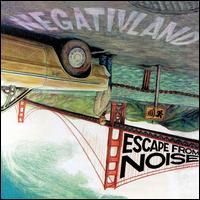
Escape from Noise is the fourth studio album by Negativland. It marked the band's first release on an established independent record label, SST Records. The album continued to develop the band's experimental style, though it also featured shorter, more melodic songs than their previous material. The track "Christianity Is Stupid", a track featuring samples of evangelist Estus Pirkle from his film If Footmen Tire You, What Will Horses Do?, proved to be an enduring signature song. Negativland gained media attention a year later after issuing a press release falsely implying that murderer David Brom had been motivated by the song; this would inspire their subsequent album Helter Stupid.

Helter Stupid is Negativland's fifth studio album, released in 1989. It is a concept album focused on the media coverage of a hoax formulated by the band claiming that "Christianity Is Stupid" from their previous album, Escape from Noise, had inspired David Brom to murder his family in Rochester, Minnesota, as well as other moral panics related to popular music.
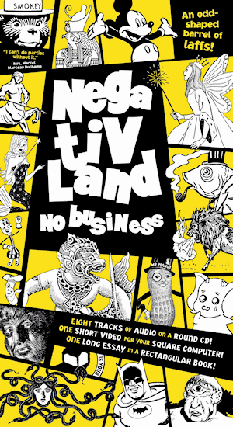
No Business is the tenth album by the sound collage band Negativland. While the songs encompass a variety of topics, the overarching theme of the album is copyright issues, especially those pertaining to peer-to-peer file sharing. Although the title track and especially the track "Downloading" are the only ones that explicitly relate to this topic, the rest of the album can technically be considered so, because they consist entirely of samples, unlike Negativland's other albums.
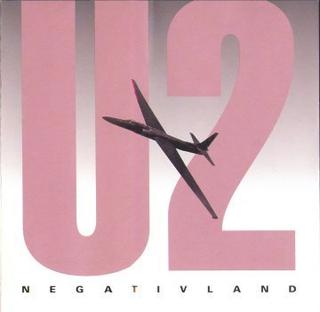
U2 is a withdrawn EP by Negativland, released on SST Records in 1991. The EP and the band gained notoriety when lawyers representing Island Records sued Negativland over the EP's unauthorized sampling of the U2 song "I Still Haven't Found What I'm Looking For" and misleading artwork. The EP's two tracks and related material were later collected on the compilation These Guys Are from England and Who Gives a Shit.
Donald S. Joyce was an American musician who was a member of the experimental music group Negativland. He also hosted a weekly radio program called Over the Edge on the Berkeley, California, radio station KPFA, for more than 30 years.

Fair Use: The Story of the Letter U and the Numeral 2 is a 270-page book and ten track CD released in 1995 by Negativland detailing their lawsuits with U2's record label Island Records for their EP U2, including many legal documents and correspondences.

These Guys Are from England and Who Gives a Shit is a 2001 compilation album by Negativland. It contains the two tracks from the band's 1991 EP U2 alongside related recordings from the band's Over the Edge radio show and tracks recorded live at the Great American Music Hall in San Francisco. As the U2 EP had been withdrawn due to a legal dispute with Island Records, the album is billed as a bootleg and ostensibly released under "Seelard Records", a misspelling of the band's Seeland Records. Several of the live tracks sample the same Casey Kasem outtakes that had appeared on U2, including a spoken portion quoting "(I Can't Get No) Satisfaction". Other tracks reference the band's struggles with their former label SST Records and the 1960 U-2 incident.
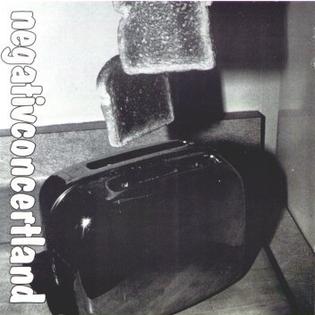
Negativconcertland is a 1993 recording of a live concert by Negativland. It is a bootleg recorded from the audience. At the time of its release, Negativland had never officially released a live album. SST later put out "Negativ(e)land: Live On Tour" against their wishes to compete with Seeland's Dispepsi album. In 2006, they released an official live recording, It's All In Your Head FM, made on the tour of the same name.

Dick Vaughn's Moribund Music Of The '70s is a collection of recordings edited from a wealth of material broadcast on KPFA's Over the Edge radio show, hosted by Don Joyce weekly and featuring members of Negativland, as well as material recorded at a Live Negativland show just after the "U2 Scandal." The recordings are broken up into two discs, and within that contain bits and pieces of many different Over The Edge Shows.
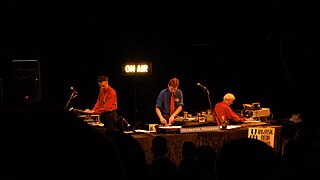
Negativland is an American experimental music band that originated in the San Francisco Bay Area in the late 1970s. The core of the band consists of Mark Hosler, David Wills, Peter Conheim and Jon Leidecker. Negativland has released a number of albums ranging from pure sound collage to more musical expositions. These have mostly been released on their own label, Seeland Records. In the late 1980s and early 1990s, they produced several recordings for SST Records, most notably Escape from Noise, Helter Stupid and U2. Negativland were sued by the band U2's record label, Island Records, and by SST Records, which brought them widespread publicity and notoriety. The band is also part of the Church of the SubGenius parody religion. Negativland coined the term culture jamming in 1984. Don Joyce added it to the album JamCon '84 in the form of "culture jammer". The band took their name from a Neu! track, with their record label Seeland Records also being named after another Neu! track.
Google has been involved in multiple lawsuits over issues such as privacy, advertising, intellectual property and various Google services such as Google Books and YouTube. The company's legal department expanded from one to nearly 100 lawyers in the first five years of business, and by 2014 had grown to around 400 lawyers. Google's Chief Legal Officer is Senior Vice President of Corporate Development David Drummond.
A major aspect of Donald Trump's presidential election campaigns, in his 2016, 2020, and 2024 campaigns, was unauthorized use of music at his prominent and frequent political rallies. Below are musicians who have voiced opposition to their music being used by Trump at his rallies, or for other political purposes, and the actions they took in response to their music's use.













